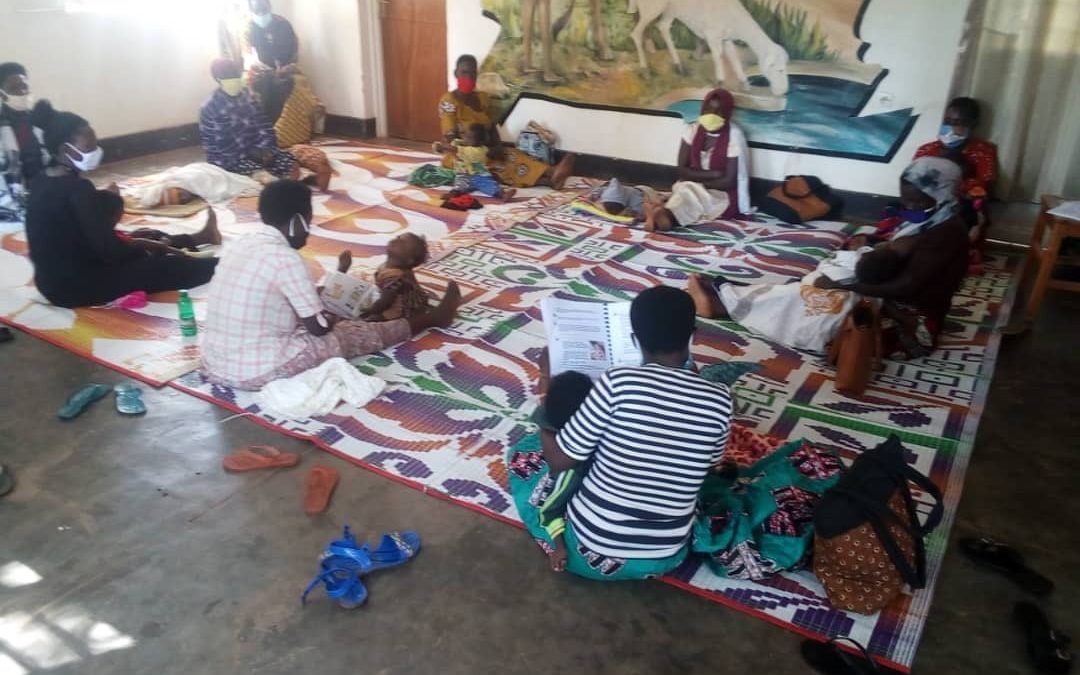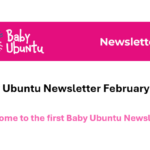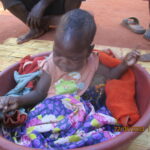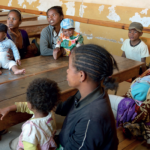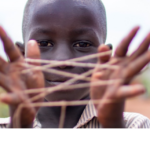The Early Intervention Programme Group B, subgroup 1 at PDC Rwinkwavu with adapted measures in place.
The past few months of 2020 have pushed the world into unfamiliar and uncertain territory, with the Covid-19 global pandemic directly leading to illness, incapacity and death, in addition to the substantial but yet unquantified indirect effects of ‘lockdown’ restrictions. It has changed the very fabric of how we live our day to day lives; our work, our children’s education, in addition to how and if we can access health services.
In many countries like Rwanda, ‘lockdown’ measures, to curb the spread of the virus by restricting movement and activities, have been strict. Restrictions have included border closures, school closures, religious service bans, curfews, closure of public transport and physical distancing measures. Whilst this has helped to slow the spread of Covid-19, they have impacted heavily the lives of vulnerable populations such as children with disabilities and their families. These families encountered many challenges such as increased poverty, increased risk of malnutrition and difficulties in accessing healthcare services. Despite Covid-19, there is still a high need for therapeutic interventions and ongoing monitoring for children with disabilities.
Since 2018, Partners In Health/Inshuti Mu Buzima (PIH/IMB) in Rwanda have partnered with Kyaninga Child Development Centre (KCDC), Uganda and the London School of Hygiene & Tropical Medicine (LSHTM) & UCLH NHS Trust to integrate the ABAaNA Early Intervention Programme (EIP) into the Paediatric Development Clinics (PDC) to address the needs of children with developmental disabilities. Since October 2019 to March 2020, 12 EIP groups with about 107 children have been established. In March 2020 EIP groups meetings were discontinued when the first case of COVID19 was identified in Rwanda and lockdown was commenced to contain the spread of COVID19 transmission.
Through social support provided by PIH/IMB, as a package of Covid-19 responses, all families with children enrolled in EIP groups have received food packages. Expert parents continued to communicate with families through telephone calls though many parents do not have phones.
In Rwanda, lockdown was partially lifted on 4th May 2020 and movements were opened between provinces on 1st June. The program has worked on integrating the local government guidelines on easing of restrictions to enable the EIP program within PDC to restart and offer much needed peer support and education to the families. Groups are being run using ‘Safe group guidelines’ that were developed around recommendation from the African CDC and Rwanda Ministry of Health and through consultation with Rwandan EIP Facilitators on messaging and telephone calls.
Key considerations for running groups during the Covid-19 pandemic are:
- Run groups outside where possible
- If indoors, maximise ventilation by opening windows and consider reducing group size
- Practice physical distancing according to local guidelines
- Provide an enabling environment for physical distancing between families
- Provide facilities for handwashing i.e. soap and water or hand sanitiser
- Disinfect toys & equipment between use
- Provide and promote correct use of face masks for caregivers
- Encourage good respiratory hygiene
- Ask families and facilitators to not attend if unwell. Consider pre-group phone calls to reinforce and screen for signs of Covid-19
Facilitators are ensuring that groups are run in large well-ventilated rooms or in outside settings to reduce transmission risk with enough space to allow each family to be 1 metre apart from each other. Where necessary groups with a smaller numbers of participants are being considered. Masks are worn by all adults in the groups and good hand hygiene is followed before and after the sessions. Guidance is also given about cleaning mats and toys and sharing toys and food is discouraged. All equipment is thoroughly cleaned with disinfectant after every session.
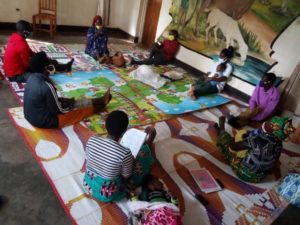
Early Intervention Programme group B, Paediatric Development Clinic, Rwinkwavu. Families observe physically distancing and all adults where face coverings to help prevent transmission.
We are very happy to see our the EIP groups running again and feedback from our families has shown that they are equally glad to be back with their group as highlighted by the following quote from one of the Rwandan group caregivers.
“Before the lockdown, group members, we were like families. We encouraged each other as we all had the same challenges, but during the lockdown we were not able to meet and share our experiences as we used to, like me, I felt lonely because of community and some family members’ stigma. As we get back together in group, we are happy together. There is still stigma but I knew at least I do hope that once or twice in a month I will meet with my colleagues, which is one of happiest moment of both me and my child ”
For more information on the Pediatric Development Clinic & Early Intervention Programme in Rwanda please contact mnemerimana@pih.org & for general programme enquiries cally.tann@lshtm.ac.uk or rlassman@hotmail.com
